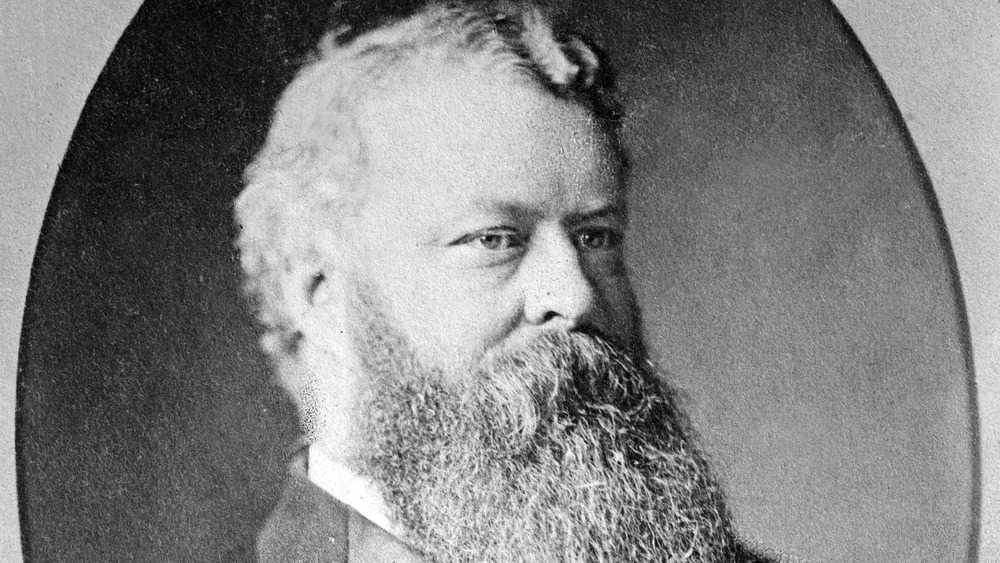This Is The Only Cabinet Member To Ever Be Impeached
Extravagant parties, fancy dresses, exquisite jewelry, social climbing wives, and a government contract scheme. That was the recipe in 1876 that led to William W. Belknap becoming the only U.S. Cabinet member (so far) to have been impeached by the House of Representatives, according to Politico. Belknap, a former Iowa state legislator and Civil War general, had held his cabinet position as Secretary of War for nearly eight years. He had become famous for his lavish Washington parties and extravagant lifestyle, leading many to question how he afforded it on his modest government salary.
A House committee began to find answers to those questions after an investigation provided evidence suggesting a pattern of corruption and kickbacks dating back to 1870. The bribery scheme was a family affair. Belknap's first wife, Carita, who had grown tired of feeling outside of Washington's elite social circles, lobbied her husband to appoint a New York contractor by the name of Caleb P. Marsh to a lucrative Army trading post at Fort Sill in the Oklahoma Indian Territory, according to The New York Times. Marsh would pay Carita $6,000 a year in exchange for her procuring the contract. She only received one payment before dying from tuberculosis in 1870, but the same arrangement was repeated with Belknap's next wife, Amanda.
By March 1876, the House committee determined it had collected enough evidence to move forward on impeachment charges.
Belknap attempted to avoid impeachment
On March 2, 1876, just minutes before the House of Representatives was scheduled to vote on articles of impeachment, Belknap raced to the White House to hand President Ulysses S. Grant his resignation. "At that, he burst into tears and took hold of my hand," Grant wrote, according to HistoryNet. "I understood that he was expecting an investigation that he could avoid by resigning; that the facts, if exposed, would not damage him so much as his wife. He spoke of his dead wife, too." Grant added: "He insisted it would save me and the government a great deal of trouble if his resignation was accepted."
Belknap's resignation, however, did not end the investigation, and the House of Representatives charged him with "basely prostituting his high office to his lust for private gain" before unanimously impeaching him, according to the National Constitution Center. Although Belknap's defense argued that the Senate had no jurisdiction to convict him, the Senate ruled by a vote of 37-29 that it did.
With Belknap present, the Senate convened its trial in early April and heard more than 40 witnesses. On August 1, 1876, Belknap was acquitted by the Senate, because it lacked a two-thirds majority. Among the 25 senators who voted for acquittal, 22 of them believed the Senate had no jurisdiction over a cabinet member who had resigned, according to as HistoryNet reports. Constitutionally unprecedented, Belknap's case would serve as reference for several other resignations before trial, including President Richard Nixon in 1974.

